Personal Experience
I first encountered the idea of virtual reality (VR) when I read the book Ready Player One by Ernest Cline. As an avid reader of science fiction books, I loved the idea of being able to escape to some virtual world through a VR headset. Soon after I read the book, the movie was released and seeing the concept executed in a visual form only increased my interest in the subject. Despite my fascination, I took it as the book genre labeled it. Fiction. I believed that there were no VR headsets, as I had never seen or heard of anyone having them.
In the fall of 2020, I happened across an advertisement for the Oculus Quest 1. My interest in the novel had not wavered, but nevertheless, I was shocked. I hadn’t realized that the concept introduced to me through a science fiction novel was real in the form of a readily available, and relatively affordable technology. I had been saving money for a while and prepared to make my purchase. Luckily, a friend encouraged me to wait a few months, as in October 2020, the Oculus Quest 2 was released. I ordered the headset and eagerly awaited its arrival.
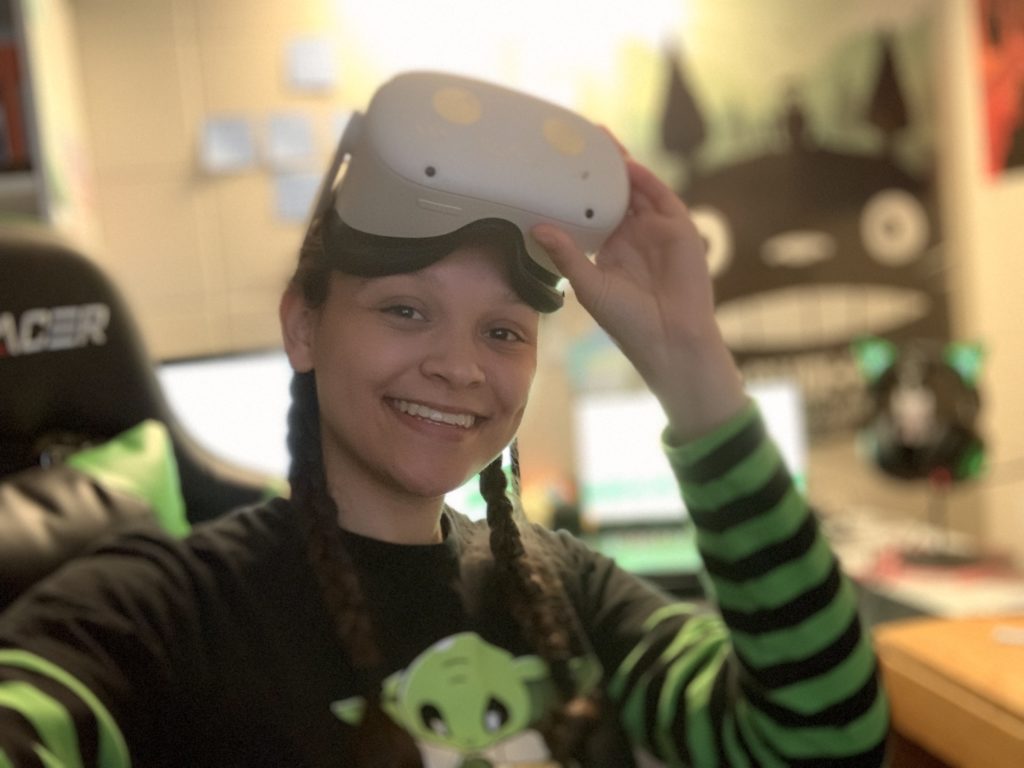
When I finally got my hands on it, I was over the moon. It may not have looked like the vision Cline painted in his novel, nor like the version in the movie, but it was virtual reality nonetheless. In the time between ordering and receiving the headset, I researched various games and experiences that I wanted to try upon its arrival. Beat Saber, a rhythm game, was top of my list and was my first purchase on the device. I’d never been one to read instructions for consoles, games, or anything at all, so I dove right in and set up my account.
As soon as I began playing, I was hooked. Whether it was the idea of actually experiencing VR or the catchy songs of Beat Saber, I absolutely fell in love with my Quest 2. I played it every moment I had time. As I danced around my living room slashing to the beat of the songs, my parents asked me what I was doing.
I excitedly explained to them what VR was, and how it worked. It was at this point I had my first experience sharing VR with someone else. After a long tutorial on how to wear the headset, how to navigate the menu, and how to play the game, my parents tried out VR for the first time.
This was all back over the winter break of 2020-2021, just before I interviewed to join the Studio X team as a Karp Library Fellow to do XR research. This was during the time that the pandemic was still pretty bad, and VR provided an escape from the harsh reality around me. It helped my anxiety and allowed me to relax, even if just a little bit while I was immersed in the world of VR.
Ever since that initial experience, I made an effort to introduce as many of my family members as I could to virtual reality.
Family Experiences
Mother
It was the various times of having my mum try VR that really inspired me to explore the topic of user interaction with VR further. Her reactions to the various experiences I had her try really made me understand the impact that VR can have on people’s lives. Her first experience was with Beat Saber, which she thoroughly enjoyed due to its catchy songs, but it was Job Simulator that really captured her attention. “I thought it was going to be dumb,” she said. “When I saw you doing it, it looked silly, but when I tried it, it blew my mind. It was a strange experience because it really made me feel like I was in the room.” For me, it was especially funny watching her play Job Simulator. I had to make sure she wouldn’t forget about the guardian boundary, as she kept trying to walk down the virtual hallway when, in reality, she was about to crash into the coffee table. Another interesting thing was how she was worried about dropping the virtual coffee cup, because she didn’t want it to break or make a mess on the floor.
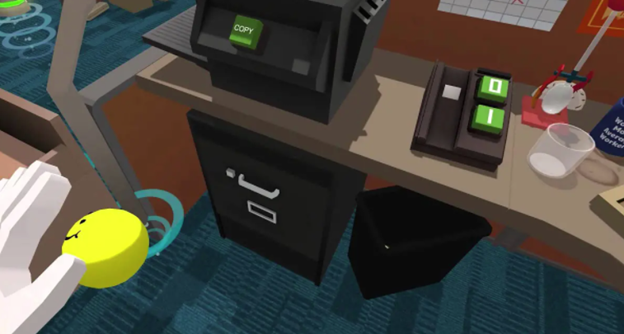
Father
While he didn’t try Job Simulator, my dad tried Walkabout Mini Golf. He’s not much of a mini-golf fan, but he was blown away by how realistic the physics were in the game. He said he kept feeling like he was going to fall off the edge of the map and even tried walking from hole to hole (which would have required a lot more space than we have in our living room). “You really don’t know what it’s like until you try it, and when you do, you can see all kinds of applications this technology may have in the future.”
Grandparents
I, of course, wasn’t going to have them do Beat Saber, and I didn’t have Walkabout Mini Golf at the time, so I had them watch a few Oculus TV videos.
Having my 96-year-old Great Grandma try VR was quite an interesting experience. She was in awe at the capabilities of the technology and loved the fly-over nature documentary about the ice caps.
My Gran tried a few different parachuting and paragliding videos. “It was amazing to feel like I was there. I feel like I could do paragliding now!”
My Grandpa watched a few shorter space documentaries and was thrilled to be immersed in the galactic environment.
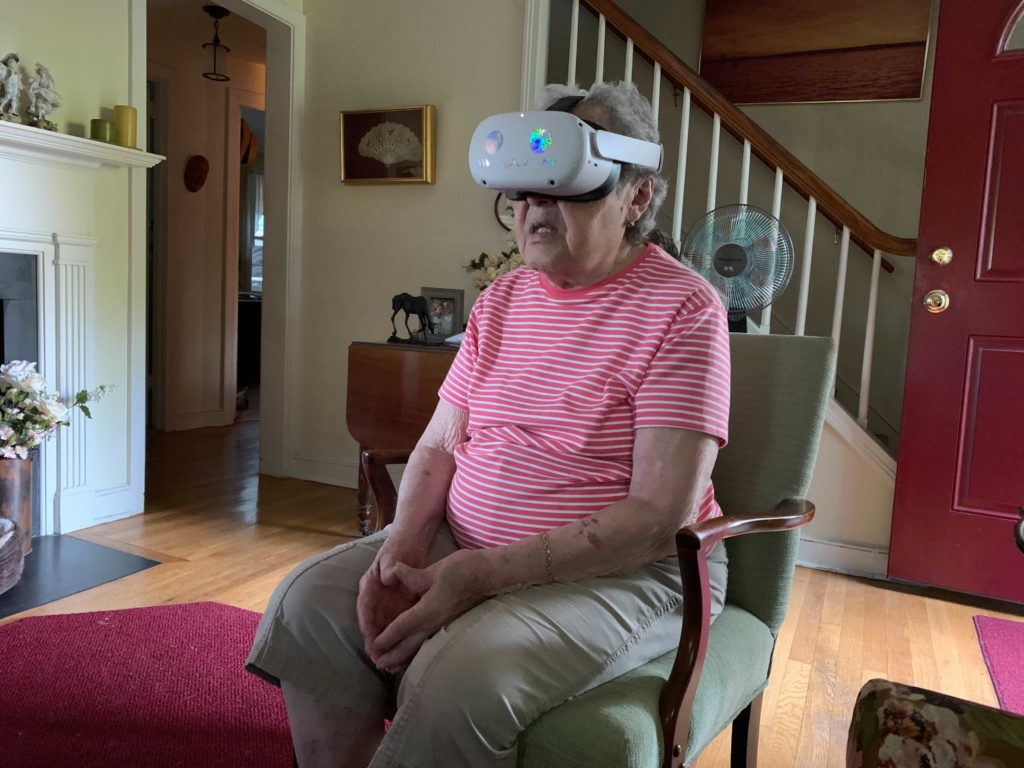
Running a Survey
After seeing the unique reactions from all my relatives, I was curious to know how others felt about their experiences with VR. I had joined several VR-focused Facebook groups to see the kinds of conversations people were having about VR and then decided to run a survey to directly ask the community about their experiences.
With the survey titled “How do Users Experience VR,” I asked a range of questions about age, their perception of VR, what they used it for, and if they had any stories they wanted to share. After about a week and a half of running the survey, I had 282 responses to go through.
One of the things that interested me the most was the age range distribution of those who responded. I’m not sure if this is directly related to the survey being run on Facebook and the demographic of Facebook users, but it doesn’t feel like a misrepresentation as the group was specifically for Oculus Quest users, and Oculus, now the Meta Quest, is owned by the same company.
Quotes
The following information is taken directly from the survey results. Some of the quotes have been reformatted a bit for coherency.
This first quote is from a friend who had some previous experience with VR. I had them try VR on my headset before asking them to fill out the survey. Their unique perspective on the potential threat VR poses to society is one that I haven’t seen discussed much elsewhere, which is why I believe it is important to include it here.
Jenna, 21, Non-Binary “At first, I thought it was super cool, but a little bit scary. As I’ve had more experience with VR games, I still think it is an awesome technology with a lot of potential uses, but I fear that VR video game violence will further desensitize users to violence in the real world. I was at an arcade once and played a VR zombie game and had to ask the worker to stop the game because it felt too much like I was killing real living things. Hence my fear of it desensitizing people to violence.”
I included the next quote because it shows VR being used as a tool for long-distance interaction and also how people in your environment perceive you as you play VR.
Tracie, 49, F “I saw it as an opportunity to stay connected and play with my friend who lives thousands of miles away from me. I used to live in my RV where there was very little space to play, so I would take my headset to the laundromat and play while doing laundry. Can't tell you how many times people were freaked out by what I was doing. I always tap the headset to bring up passthrough when someone came in and when I started interacting with one guy he was totally weirded out ... ‘you can see me!!!’ ... lol. Yes. Yes, I can. (I was in a closed RV community laundry place with the offices and rec center in the same building -- it was completely safe).”
These next two quotes are particularly interesting as they show the potential uses for the elderly and the health benefits of using VR.
Bonnie, 79+, F “I became so enthusiastic, it was fun, and I moved my body. I bought a headset and began to realize all the possibilities. I finally got my Quest2 in September and found Fitxr and SuperNatural. I have continued to use my quest 2 every day and have barely explored all the apps. My enthusiasm prompted five other sales among my friends as they noted my weight loss and toning of my body. I never thought that an old person could gain strength and balance. Just thought we went backwards physically. I had given away my cross-country skis and now wish I had them back as I have gained strength in my entire body. My balance has improved so much and although I have “bat wings” on one side of my arms I actually have muscle “bumps” on the other side. I can do step ups - more and more each week or so. I can do squats, as many as 40 at a time. Every day my muscles ache, but I LOVE IT as I realize it is a good ache and I earned it. The technology allows me to socialize with others, visit sites I had traveled to previously and brings back happy memories. The technology allows me not to travel to a gym (not that I would have) and to have privacy.”
M, 75, F “I am seeing more uses for homebound, elderly... seeing it as a way of connecting friends and family scattered around the country. wonderful experience taking my 85-year-old brother to the top of mount everest! Getting to play golf with a group of women every week. exploring worlds in altspace”
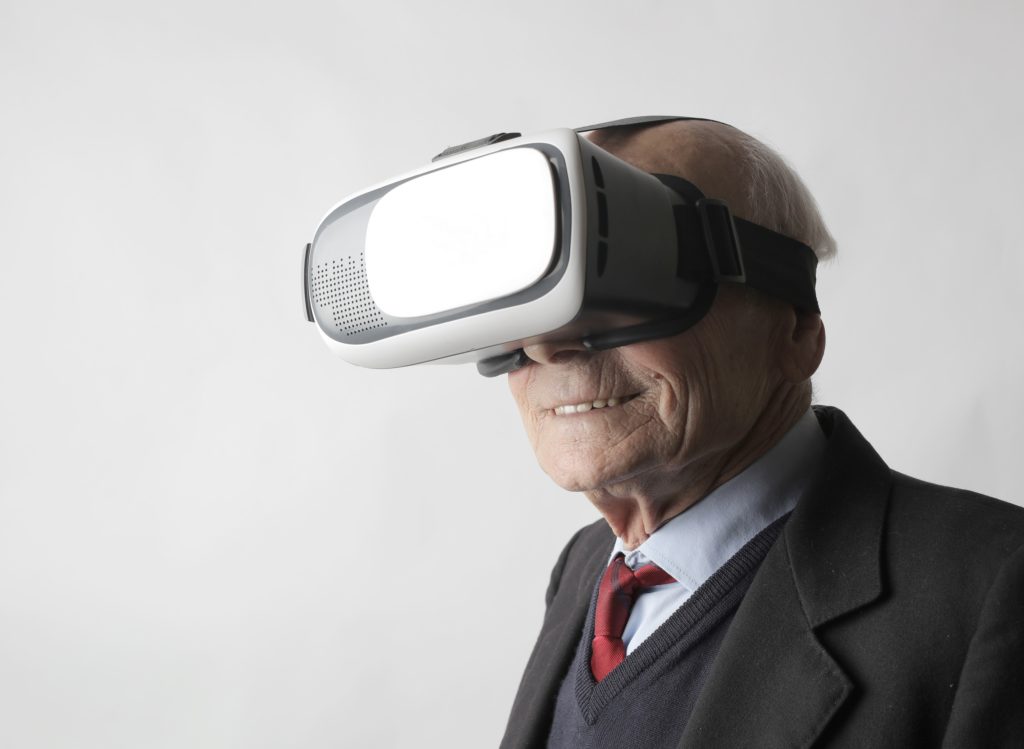
The following quote shows the emotional impact VR can have on people through the experiences it allows one to have.
Sherry, 57, F “I bought an Oculus for my 11 year old granddaughter for Christmas. She brought me to the kitchen and told me to stand in a spot. She put it on me and told me to close my eyes. When it was on, she told me to open them. I was in a beautiful mountain lodge. Out the window were mountains. I was overwhelmed and began to cry. It was as if I had been transported to my home in the mountains 25 years ago. I could not believe my eyes. Literally! I just kept saying … is this real? I knew immediately that I must get my own Oculus and pretty much immediately ordered one for myself based on that 5 minutes of standing in a room looking at the mountains.”
These next quotes show an optimistic perspective for the future of VR technology.
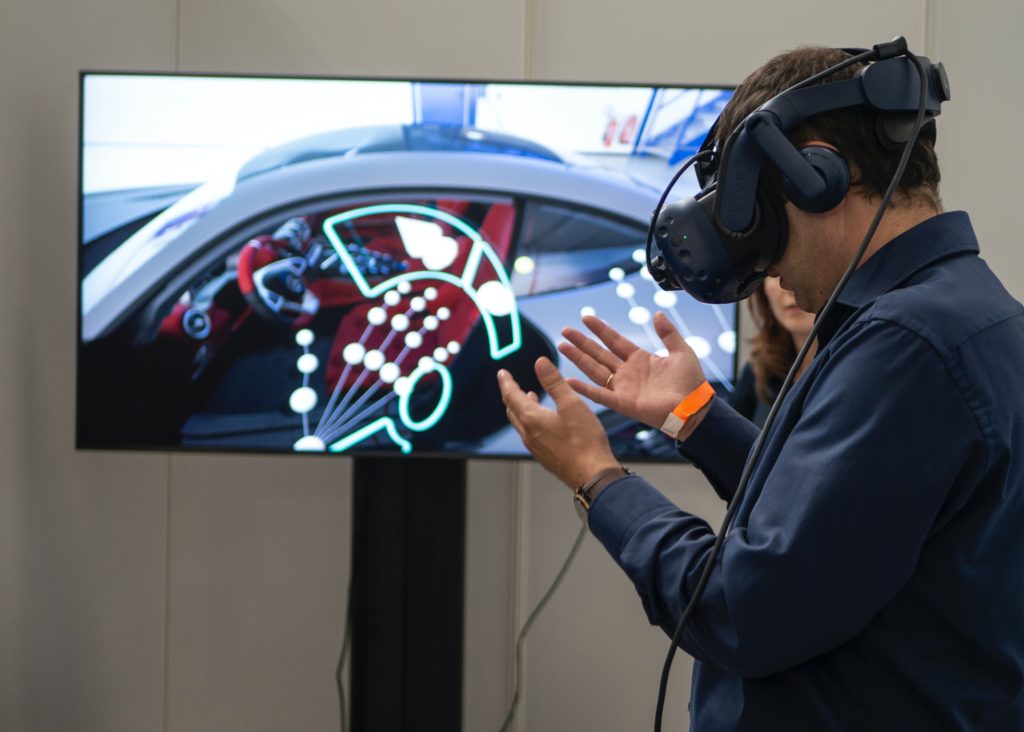
Anonymous, 59, F “At first, it was just a music game that I played. I've since added more experiences with various game types, the Multiverse, and more. Rather than this just being a gaming system, I can see a future for business, education, research, social interacting (that can actual involve talking to one another vs just texting), shopping, and so much more!”
Susan, 61, F “I came to see it could be used for exercise and education and other non-gaming applications. I have come to see that it is a powerful educational tool, particularly for people who are limited, either physically or not able to travel to other parts of the world. Also, I believe it could be used to deepen educational experiences in a variety of ways. I also continue to believe it is probably pretty addictive and should not be used many hours of the day as it is basically an escape and not particularly productive in general. I think it’s a great tool for people who are disabled or otherwise housebound. I have a concern that entering a VR world takes away from the time that people spend outdoors, which in the end is far more important.”
Skye, 45, F “It was more real than I thought it would be. And I immediately saw the potential applications to things that I cared about - like art, exercise, and experience with others. When my brother bought everyone in the family an Oculus for Christmas, that was a game-changer. I was SHOCKED with how much further the technology had come and am a total convert and trying to get others to get a headset so we can hang out in virtual worlds and other experiences. I now see VR as being something that is relevant for my life now and into the future. I see how it can improve my interactions with family and friends (we spend more time together...especially since Covid and distance limits our in-person opportunities), and it has given me new ideas for how to approach and use it for engagement for my wellness company and clients.”
The next several quotes show the potential therapeutic and mental benefits of using VR.
Audrey, 38, F “I have ADHD. I was diagnosed at 37 years old, and I have found that the exercise component for VR allows me to keep engaged in a way no other exercises have previously. I still do other types of exercise (such as strength training or hiking) but when I’m not in the mood to workout, the menu of options in VR still brings excitement for me.”
Anonymous, 42, F “I live in the Midwest, and it is dark by 4 o'clock in winter. In vr, I can hop into real fishing vr and spend time on the lake in sunshine. It doesn't matter that it's not real, your body still relaxes, endorphins are released. It has helped a lot with seasonal affective disorder this year.”

Anonymous, 41, F “My mom passed away June 2020, she had prefrontal dementia, she slowly lost all her motor skills and eventually mobility. One of the last happy memories that I have with her was me putting the oculus quest on her face and guiding her through a tour of the African Sahara. She actually reacted and reached out to try to touch lions and I swear I saw her smile when she saw elephants. Looking forward to seeing what VR therapy for people with dementia, Alzheimer's and other debilitation can bring in the future.”
Susie, 46, F “I bought a VR to study the exercise game Supernatural and its effect on learning and motivation for Neurodiverse individuals. (Specifically adhd) I realized pretty quickly that this is the platform of the future. Way beyond games. I see it used for mental health/therapy, exercise, social connection, work interaction, performance/skills enhancing (like public speaking) etc. I’m literally applying for a PhD program so I can study VR some more. It’s changed my life! Supernatural daily has decreased my adhd symptoms tremendously. I feel my brain starting to work better. I can see this tool being an alternative to meds for those who can’t take them.”
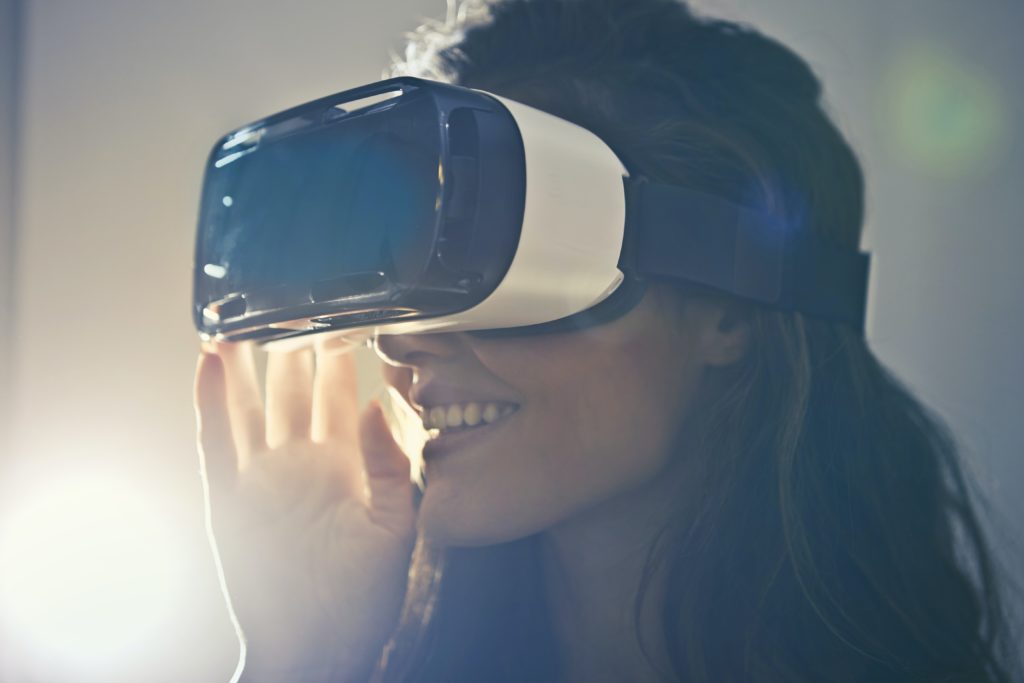
This next shows how giving VR a second chance can completely change your perspective on the technology.
Anonymous, 24, F “My first experience was poor. I tried it at the mall when it was fairly new, and it was a video simulation of an amusement park ride. Sitting down, I got a very intense feeling of motion sickness and did not enjoy the video at all. It was a very bland video simulation. Although my 1st experience was bad, I gave it another try at a friend's house. This was a totally different experience compared to my first. I played beat Saber and it was an overwhelming, awe-inspiring time. From that point forward, I began thinking of VR as the future and one of the most advanced types of technology to exist yet. Almost all experience I have had after that has been incredibly immersive and entertaining. I look at VR as an opportunity to take a break from our physical world and enter another world.”
The last quote I leave you with is a pretty cool perspective on how the technology has changed over time, and how it has impacted this person’s life and social interactions.
Gnossos, 65, F “Early 90s I was hired by a Space Museum to consult on a VR exhibit and traveled to Boston, Chicago and LA to test drive early concepts. First experiences were so bad that I told the Space Museum to hold off on purchasing VR until it was more developed. Oculus Quest's first experience did not disappoint. My perceptions shift with the technology development, of course. I still see it in its infancy - it’s the Pong Era of VR meaning it sucks but we don’t realize it yet. It’s going to be 100 times better in 10 years. I was surprised by having a crush on a guy in Rec Room who played Paint Ball like he was a trained assassin. Crushes are a distant experience for me, so having one with only a voice and a cartoon avatar really surprised me. I think the safety of my anonymous state helped create an openness to flirting that’s not my normal way. It inspired me to wonder more about the potential for intimacy in VR - especially if these spaces were developed by women.”
Reflection
VR is rapidly growing to be one of the most popular forms of XR. It is estimated that in 2020 nearly one in 5 people in the US, or 19% of consumers, used VR. Due to this increasing demand, it is expected that nearly 15 million AR and VR devices will be shipped to customers worldwide in 2022. Source
The quotes provided above shine a small spotlight on the many ways that people are being impacted by VR every day. From new ways of socializing to new methods of staying physically and mentally fit, VR has the ability to benefit everyone in some way shape or form due to its versatility. It is this social and emotional impact that allows VR to become so popular, as people feel directly connected to the experiences they are trying while in VR. The ever-present description of VR being the ultimate empathy machine is growing more and more accurate as the technology progresses and the range of possibilities expands.
Education from the sciences to the humanities, job training, interpersonal relationships, concerts, work meetings, all these fields can and are already benefiting from VR technologies. More and more people are being exposed to VR every day, and soon enough, it will become a household staple, much like cellphones and TVs. And why? Because of the ways we as users experience VR. It is the consumer perspective that shapes the industry, which is why it is so important to understand why people react the way they do to these technologies.
I personally believe that VR has shaped my perspectives on the world in ways I wouldn’t have been able to imagine due to some of the experiences I have tried. VR has opened my mind to new perspectives on personal space, human interaction, disabilities, and even the way I view myself as a person existing in the real world versus in the digital one.
VR has a unique ability to change perspectives and influence emotions, and it is up to the people using it to decide what path VR ultimately goes down.



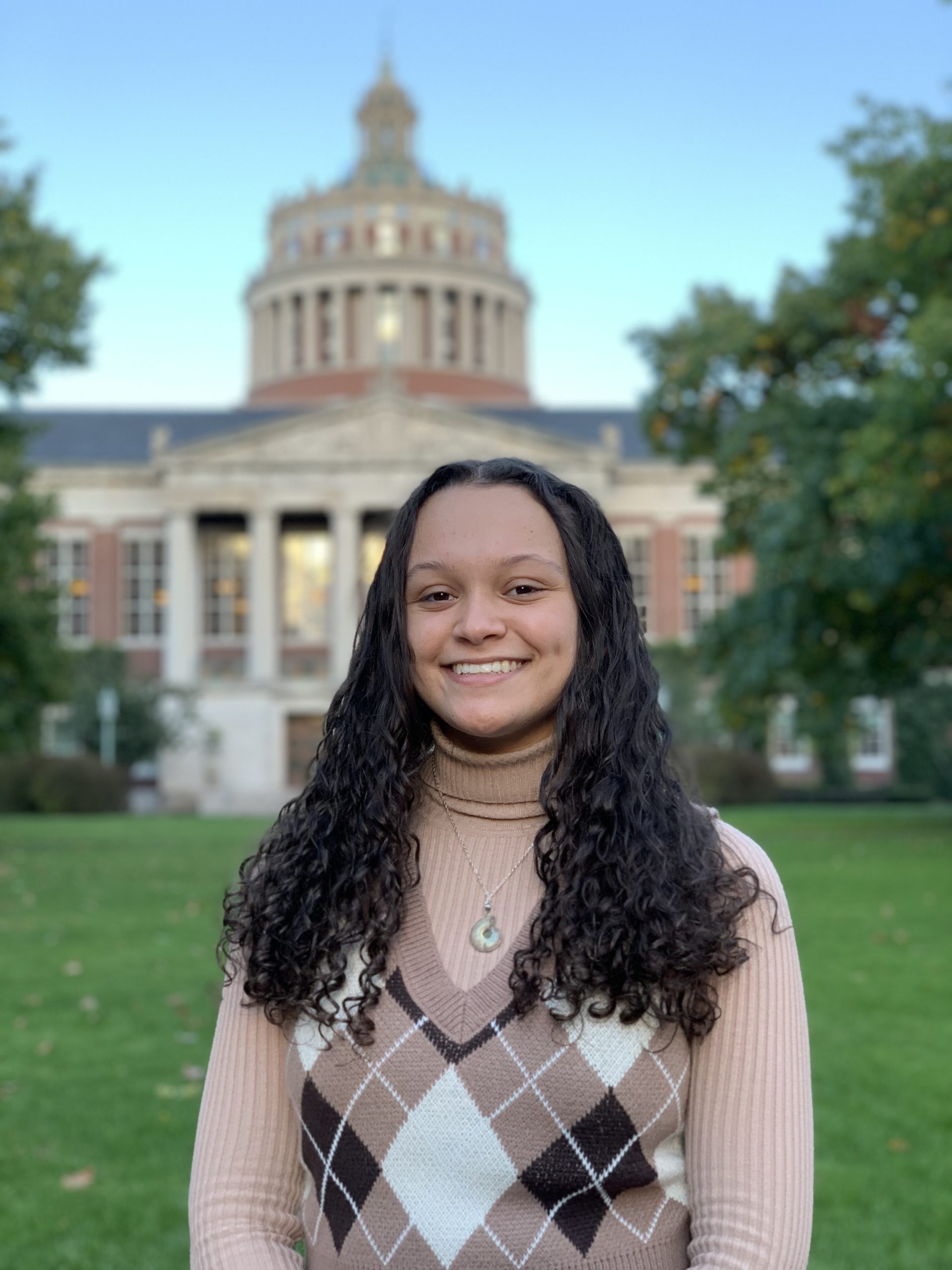
Enjoyed reading about other peoples experiences with VR. After reading this I would love to try one of exercise applications.
What a wonderful read. I am ready to make a purchase and dive in. I see this as a great way to stay ‘closely’ connected with family and friends.